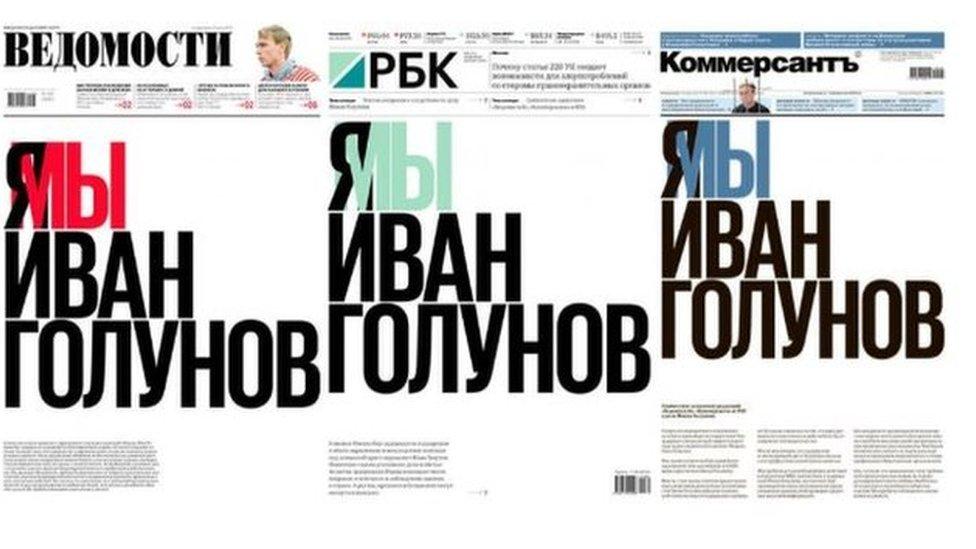The anti-corruption case that touched a Russian nerve
- Published
The anti-corruption reporter celebrated in Russia
"People are tired of injustice," says Ivan Golunov, an independent Russian journalist who has come to symbolise the struggle against powerful corrupt officials.
The 36-year-old, working for online publication Meduza, was held by police in Moscow last month and accused of large-scale drug-dealing. But the charges were dropped following a public outcry.
At the time of his arrest, Golunov was investigating corruption in Moscow's funeral services. He found a link between the managers of Ritual, the company with a monopoly in the capital's funeral market, and high-ranking officials at the FSB state security service.
"I don't know whether my arrest was the result of this particular investigation or an earlier one," he told BBC Russian. "The fact is, many of my reports have caused offence."
His arrest caused anger in Russia and hundreds of people protested in Moscow in the days that followed. Three national newspapers cleared their front pages to run the giant headline "We are Ivan Golunov".
Ivan Golunov was given a warm welcome after his release
He says he is grateful for all the support he has received, both from the journalistic community and from ordinary Russians.
"Everyone believes there's no civil society in Russia, but this proves the exact opposite - that people can mobilise very quickly and achieve a result.
"The fact is, people are tired of injustice, of the fact they know they have to be wary of the police, rather than seeing them as the ones who protect us. People are fed up with this."
Golunov's investigation into the funeral trade reads like the script of a mafia thriller.
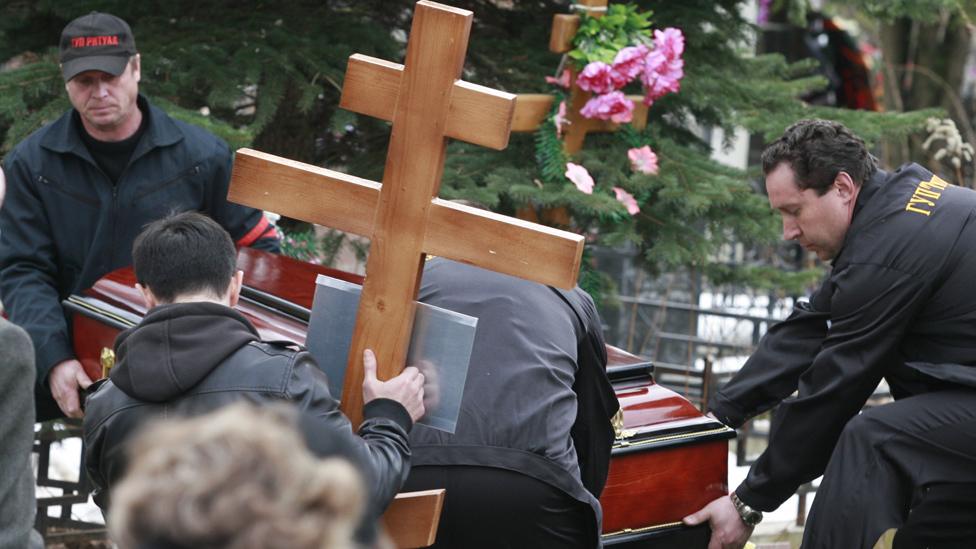
A Moscow burial - the cemeteries are controlled by Ritual (archive pic)
Lucrative monopoly
In 2016, a mass brawl involving up to 400 people took place at the Khovansky cemetery in south-west Moscow, between rival factions in the industry. Three people died and dozens were injured.
According to Golunov, the fight heralded the start of a new regime at Ritual. He alleges he found close ties between the new managers - many of whom come from Russia's southern Stavropol region and were previously employed in the alcohol trade - and senior FSB officials.
Golunov's investigation found that Ritual had a monopoly on the funeral business in Moscow and that prices for burials were increasing. He discovered that Ritual had forced all the private funeral companies out of business.
"So now there's only one company dealing with funerals and you have to go to them," he told BBC Russian. "If they put the price up, you have to pay it."
"Few people know, but in Russia the state provides free funerals for everyone. There is a so-called guaranteed list of services that the state undertakes to provide to every dead person. But even if you know, you will most likely be told that no-one gets buried for free, that 'you only get free cheese in a mousetrap'."
He also discovered that Ritual's first deputy director, Valerian Mazaraki, has a home in a luxury dacha complex outside Moscow, where his three closest neighbours are senior FSB officers. Their children attend parties together and one of the FSB officers recently sold his BMW X5 to the head of Ritual's transport service department, Golunov's investigation found.
Ritual's management deny the connection and the FSB officers have refused to comment.
Risky investigation
While Golunov was detained, Meduza put together a group of 15 journalists and editors from various independent news organisations, including BBC Russian, to fact-check and provide additional reporting to help get the investigation completed. Once the charges against him were dropped, Golunov returned to work on the story himself.
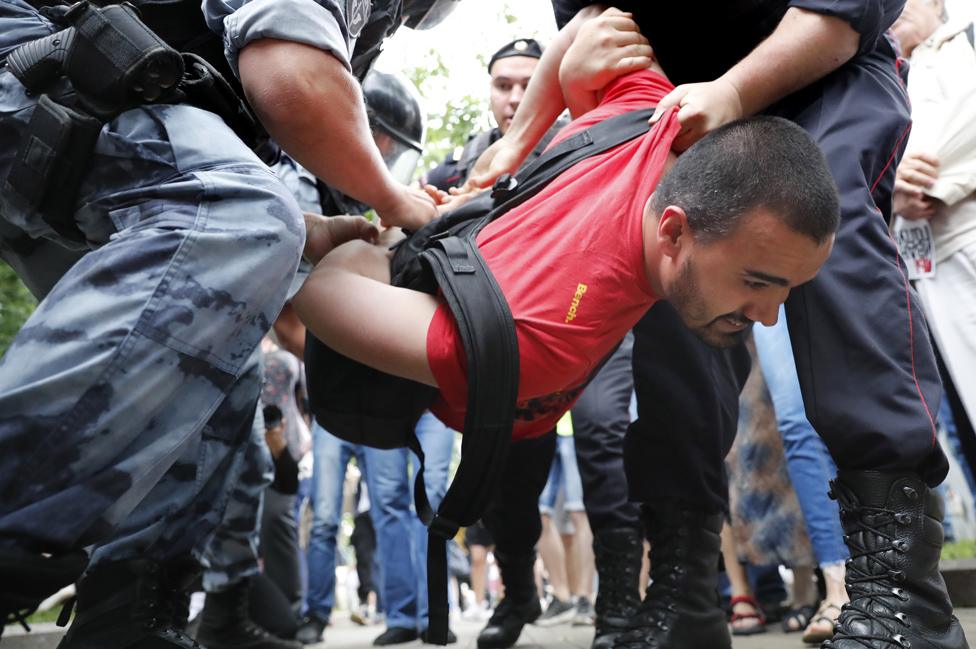
Police detained at least 200 at a Moscow rally in support of Golunov on 12 June
Golunov told BBC Russian he had been advised to take extra security precautions since his arrest. The interview was carried out via Skype "because I have some restrictions on public communication, with people who are not in my family", he said.
He said that during his latest investigation into the funeral business he had probably been followed.
Asked what he would do once the case was closed, Golunov said he would take some time out before returning to work as before.
He said he hoped his investigation and arrest would bring some changes to the way law enforcement agencies work in Russia.
"But I am a journalist: my job is to inform, not to change things," he said. "I just tell stories. I hope that people find them interesting."
- Published13 June 2019
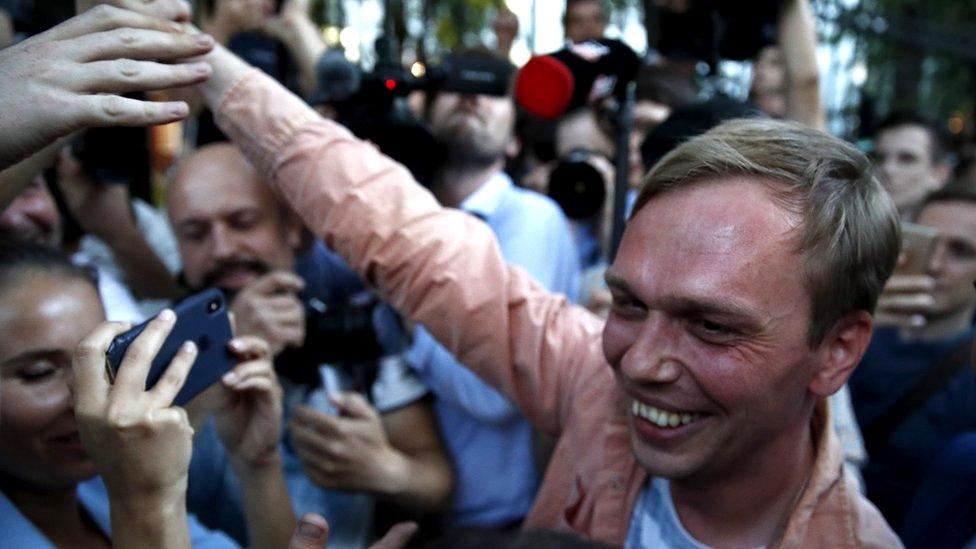
- Published12 June 2019
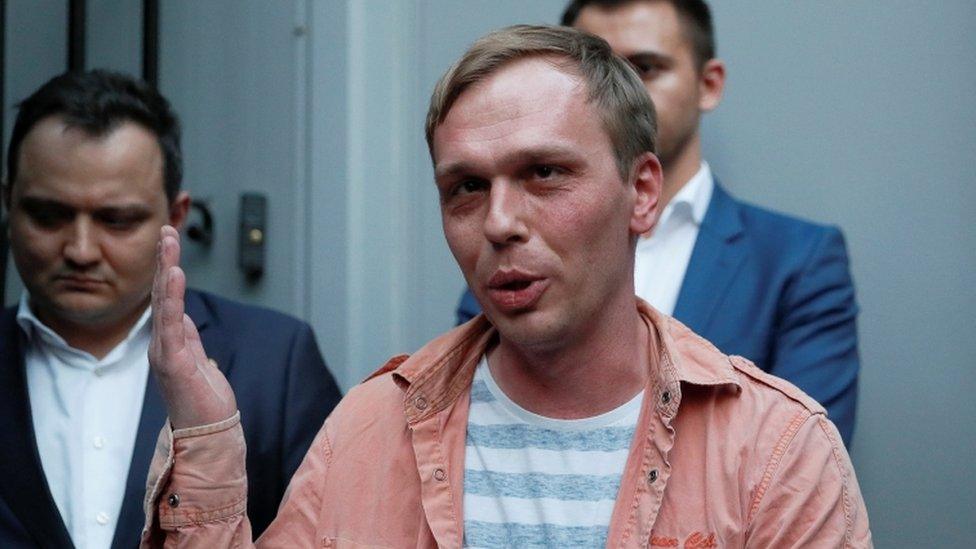
- Published11 June 2019

- Published10 June 2019
